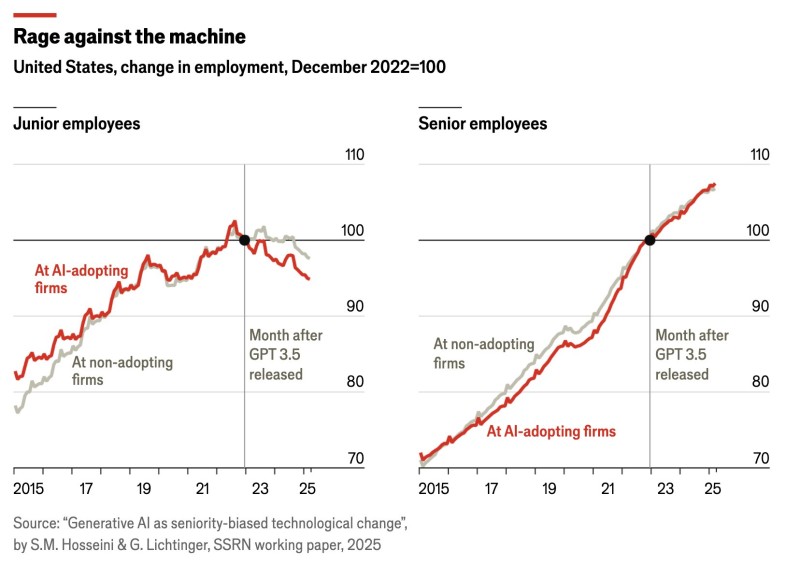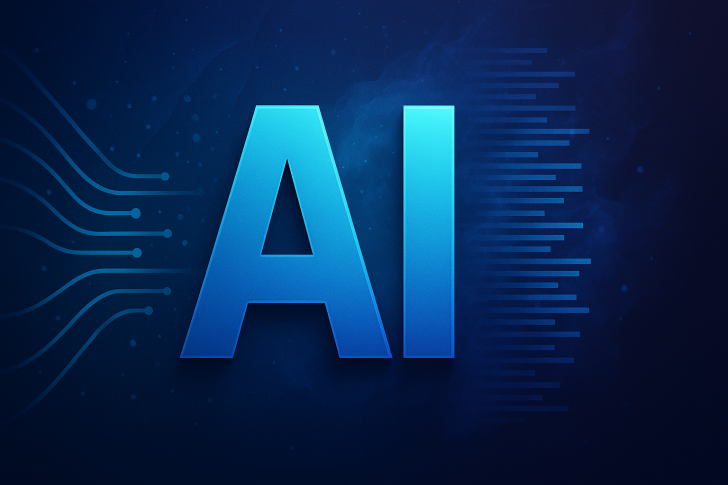New research reveals a significant shift in U.S. hiring patterns as companies integrate artificial intelligence into their operations. Firms adopting AI tools are increasingly favoring senior workers over junior ones, fundamentally altering traditional career pathways and raising concerns about long-term workforce development.
The Employment Split After GPT-3.5
Recent data from the paper "Generative AI as Seniority-Biased Technological Change" by S.M. Hosseini and G. Lichtinger (2025), brought to attention by trader Crémieux, shows a clear divergence in employment trends between 2015 and 2025.

At companies implementing AI systems, junior worker employment initially climbed but reversed sharply after GPT-3.5's introduction in late 2022. By 2025, these positions had fallen significantly below 2022 levels. Meanwhile, senior roles at the same firms continued expanding, even outpacing growth at non-AI companies. The pattern suggests AI isn't eliminating jobs wholesale—it's redistributing them toward experienced professionals.
Why Entry-Level Positions Are Disappearing
Modern AI systems like GPT-4 and Copilot now handle routine analytical work, document drafting, and coding tasks that once trained junior staff. Companies are shifting toward lean, senior-led teams that oversee and refine AI outputs rather than maintaining large pools of entry-level workers doing repetitive assignments. This creates a serious challenge for career development, potentially closing off traditional pathways where beginners learned through hands-on experience. The erosion of these training-ground roles could have lasting effects on professional growth opportunities for younger generations.
Broader Economic Consequences
This transformation amplifies existing workplace inequalities. Senior employees gain from productivity improvements and expanded supervisory responsibilities, while younger workers struggle to break into high-skill sectors. Economic experts caution that without significant changes to education and corporate training programs, this divide could widen generational income gaps and stall professional mobility. The solution may lie in redesigning entry points to focus on AI collaboration and oversight rather than task execution.
 Alex Dudov
Alex Dudov

 Alex Dudov
Alex Dudov


